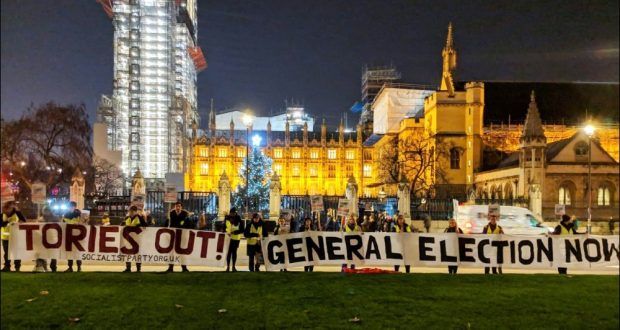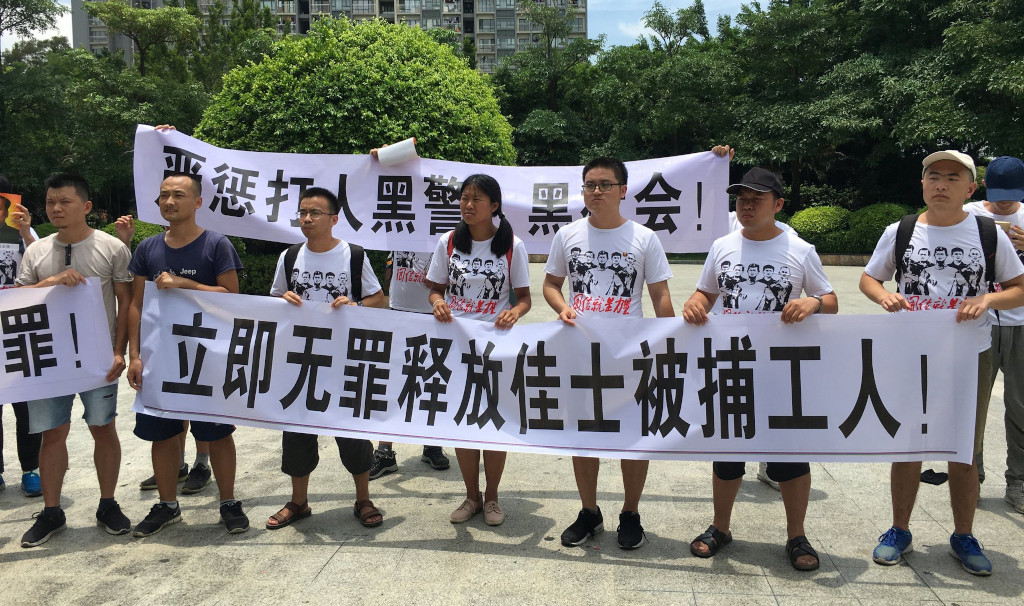
Brexit totally absorbs British politics, with chaos in the House of Commons, and both Labour and Tory parties deeply divided, probably irreparably.
Britain joined the European Economic Community (forerunner to European Union (EU)) in 1972. There was a left-wing and right-wing opposition to the EU. Those on the right, mainly older and better-off, dream of returning to the British empire days and believe that Britain outside the EU would be great again. Left-wing opposition points to the EU as a pro big business organisation, with rules enforcing privatization and against public ownership.
The Tory party’s anti-EU wing caused the leadership headaches for decades. Prime Minister John Major had called three anti-EU cabinet members “bastards.” David Cameron, in a concession to his right-wing, committed to an EU referendum if he won the 2015 General Election.
Labour’s defeat in that election led to a leadership contest with Corbyn, campaigning against austerity, winning a landslide against all the establishment’s expectations. However, only 6% of Labour MPs supported him, as most are in the mould of Tony Blair.
Cameron, confident of winning the EU vote and hoping to silence his anti-EU critics and cut across Farage’s nationalist UKIP, called the referendum for June 2016. All the establishment campaigned for a Remain vote. In many working-class communities, especially in areas that had suffered massive industry closures and deep cuts to public services after decades of austerity, there was seething anger at the government.
Unfortunately, trying to keep his MPs happy, Corbyn did not campaign in the referendum for working-class people and on his long standing opposition to the EU and austerity. This allowed right-wing bigots like Johnson and Farage to lead the EU opposition.
The No vote won 52% support, at root a working-class revolt against the existing order. Support to stay in the EU was strongest among young people (largely for positive anti-racist and internationalist reasons), in Scotland and the big cities. David Cameron resigned as Prime Minister and Theresa May took over, promising Brexit. Believing the media attacks on Corbyn, she called an election in June 2017 hoping to strengthen her hand. Instead, Corbyn’s policies won wide support, especially from young people. The Tories were reduced to a minority government reliant on the right-wing Northern Irish DUP.
For months now every government proposal on Brexit has been defeated, including the biggest ever Parliamentary loss, a majority of 230 votes against the government. Vote after vote on differing proposals and nothing is agreed. Yet May is still Prime Minister. Eight Labour and three Tory MPs have left those parties to form Change UK. There is a huge chasm in the Tory party with cabinet members voting against their own government. The Tory’s loss of 1,300 seats in this May’s council elections adds to the pressures for May to go. They face further humiliation in the European elections on May 23. Labour is also deeply split, with most MPs supporting a second referendum and Remain. Brexit could lead to a fundamental re-alignment of British politics.
Government is paralysed. The British ruling class despairs as events have spiralled out of control and capitalist politics are in crisis. The fog of Brexit hangs over everything. Beneath it lies the bitter anger of the majority of the working class and sections of the middle class.
Britain was supposed to leave the EU on March 29; now there is a second extension to October 31. However, nothing has been resolved. Behind the impasse lies the conflicting interests of the EU and British nation states and the different capitalist classes.
Between now and October all sorts of possibilities exist including further paralysis of government, a breakdown of negotiations and an accidental no-deal exit, a cabinet rebellion and the removal of May, a general election, a Corbyn-led government or another hung parliament.
If Corbyn does not act the working class will face further attacks and right-wing propaganda will gain support. However, there is the potential for Corbyn and the unions to turn things around with bold policies to end austerity and protect jobs. If they mobilize for a general election and a workers’ Brexit this could win widespread support, blowing away the fog of confusion.



